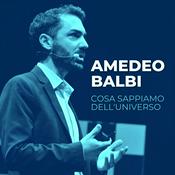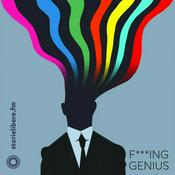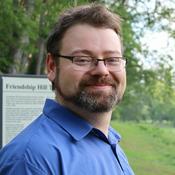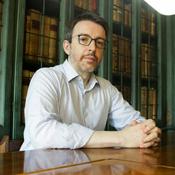75 episodi

The final episode of Simplifying Complexity
18/08/2025 | 4 min
After almost three years of deep discussions with world-renowned experts to try to understand the underlying principles of the most complex systems in our universe, this is the final episode of Simplifying Complexity. However, we’re pleased to announce the return of the Brady Heywood Podcast from hiatus. The Brady Heywood Podcast is a show about engineering failures and disasters where we examine the technical, human and organisational causes of failure, and explore why our decision-making is not nearly as rational as we’d like to think. The Brady Heywood Podcast will be returning soon with an in-depth new series about the 1986 Challenger disaster. Thank you for listening to the show and I hope to see you in the Brady Heywood podcast. Resources and links: Brady Heywood Podcast on Apple Podcasts Brady Heywood Podcast on Spotify Connect: Simplifying Complexity on X Simplifying Complexity on YouTube Sean Brady on X Sean Brady on LinkedIn Brady Heywood website This show is produced in collaboration with Wavelength Creative. Visit wavelengthcreative.com for more information.

In conversation with Dave Snowden
04/08/2025 | 54 min
Dave Snowden is the Founder and Chief Scientific Officer of The Cynefin Company. The Cynefin Company is an action research and development hub that uses complexity science principles to provide organisations with better tools and frameworks to solve complex problems and improve management practices. In this episode, Dave reveals how the Cynefin Framework aids in people management and how leaders can use it to distinguish between ordered, complex, and chaotic systems. He also addresses the limitations of traditional systems thinking and the role of AI in modern decision-making. Resources and links: The Cynefin Company website Dave Snowden on X Dave Snowden on Bluesky Dave Snowden on LinkedIn Connect: Simplifying Complexity on X Simplifying Complexity on YouTube Sean Brady on X Sean Brady on LinkedIn Brady Heywood website This show is produced in collaboration with Wavelength Creative. Visit wavelengthcreative.com for more information.

Exploring societal collapse - Part 2
21/07/2025 | 27 min
This is part two of our discussion with Marten Scheffer about societal collapse. Marten Scheffer is a Professor at Wageningen University and Research Centre and an External Professor at the Santa Fe Institute. In this episode, Marten explores the concept of critical slowing down as a precursor to collapse and how this concept is applied to understand modern issues such as climate change, mental health, and societal stability. Connect: Simplifying Complexity on X Simplifying Complexity on YouTube Sean Brady on X Sean Brady on LinkedIn Brady Heywood website This show is produced in collaboration with Wavelength Creative. Visit wavelengthcreative.com for more information.

Exploring societal collapse - Part 1
07/07/2025 | 31 min
Throughout history, we’ve seen societies rise and dramatically fall, but why? In this episode, Marten Scheffer, a Professor at Wageningen University and Research Centre and an External Professor at the Santa Fe Institute, explains how social, political, and environmental factors contribute to a decrease in resilience over time, leaving previously powerful societies vulnerable to collapse. This episode is part one of our two-part chat with Marten. Connect: Simplifying Complexity on X Simplifying Complexity on YouTube Sean Brady on X Sean Brady on LinkedIn Brady Heywood website This show is produced in collaboration with Wavelength Creative. Visit wavelengthcreative.com for more information.

In conversation with Jim Rutt
23/06/2025 | 48 min
Jim Rutt is the Host of The Jim Rutt Show podcast, former Chair of the Santa Fe Institute, Co-founder of the GameB Social Change Movement, and “Retired Business Dude” after a long career as a businessman in the tech industry. In this episode, Jim outlines how his career as a tech executive intersected with complexity science to contribute to groundbreaking research in genetic algorithms and market simulations. He also discusses the role of AI in programming and the need for multidisciplinary talent in tech development. Resources and links: The Jim Rutt Show website The Jim Rutt Show on YouTube Jim Rutt on X Jim Rutt on Bluesky Connect: Simplifying Complexity on X Simplifying Complexity on YouTube Sean Brady on X Sean Brady on LinkedIn Brady Heywood website This show is produced in collaboration with Wavelength Creative. Visit wavelengthcreative.com for more information.
Altri podcast di Scienze
Podcast di tendenza in Scienze
Su Simplifying Complexity
Ascolta Simplifying Complexity, Geopop - Le Scienze nella vita di tutti i giorni e molti altri podcast da tutto il mondo con l’applicazione di radio.it

Scarica l'app gratuita radio.it
- Salva le radio e i podcast favoriti
- Streaming via Wi-Fi o Bluetooth
- Supporta Carplay & Android Auto
- Molte altre funzioni dell'app
Scarica l'app gratuita radio.it
- Salva le radio e i podcast favoriti
- Streaming via Wi-Fi o Bluetooth
- Supporta Carplay & Android Auto
- Molte altre funzioni dell'app


Simplifying Complexity
scarica l'app,
ascolta.





































